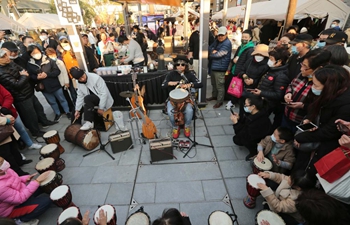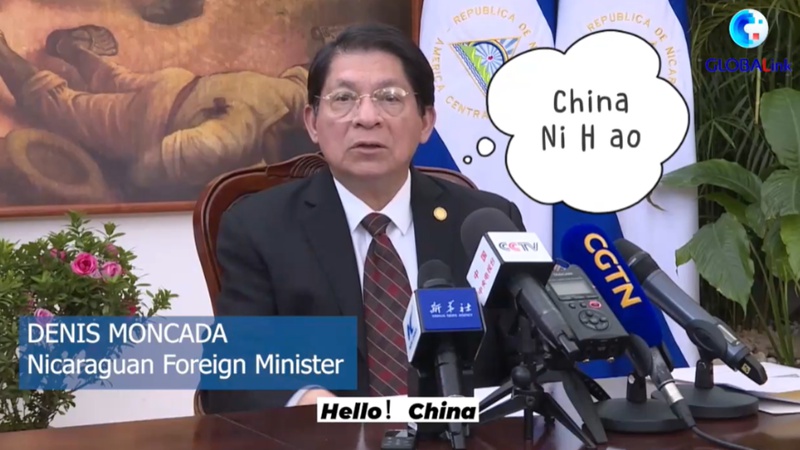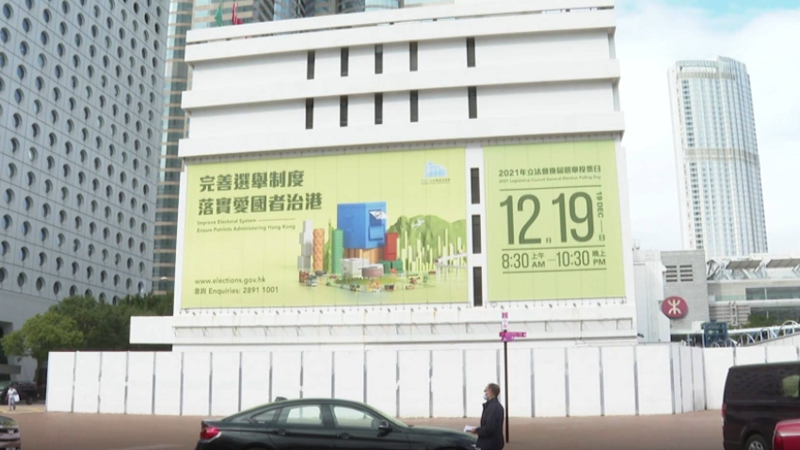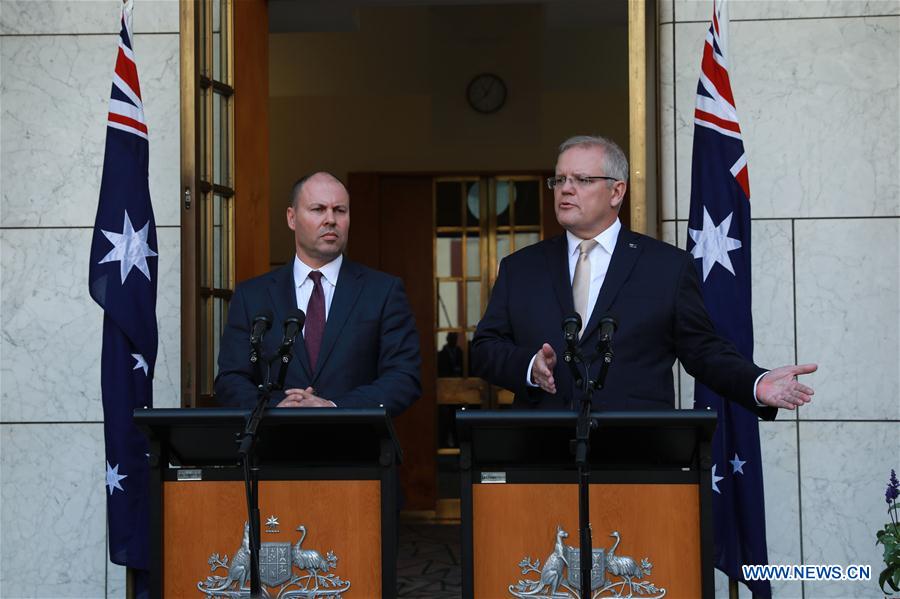
Australian Prime Minister Scott Morrison (R) and Treasurer Josh Frydenberg attend a press conference at the Parliament House in Canberra, Australia, March 12, 2020. The Australian government announced a 17.6-billion-Australian-dollar (11.35 billion U.S. dollars) coronavirus stimulus package on Thursday. The measures, which are worth more than 1 percent of Australia's Gross Domestic Product (GDP), include incentives to fast-track investment and wage subsidies for trade apprentices. (Photo by Chu Chen/Xinhua)
CANBERRA, March 12 (Xinhua) -- The Australian government has announced a 17.6-billion-Australian-dollar (11.35 billion U.S. dollars) coronavirus stimulus package.
Prime Minister Scott Morrison and Treasurer Josh Frydenberg unveiled the support package on Thursday, one day after Morrison and Health Minister Greg Hunt announced a 2.4-billion-Australian-dollar (1.55 billion U.S. dollars) medical response to the crisis.
"This is a very comprehensive, a very well thought through, a well-targeted plan, which is designed to support the Australian economy and jobs and businesses through the difficult months ahead," Morrison said.
The measures, which are worth more than 1 percent of Australia's Gross Domestic Product (GDP), include incentives to fast-track investment and wage subsidies for trade apprentices.
Some 690,000 small and medium-sized businesses with turnovers of up to 50 million Australian dollars (32.26 million U.S. dollars) per year will be eligible for tax-free payments of 2,000 to 25,000 Australian dollars (1,290 to 16,000 U.S. dollars) to save jobs.
Businesses with turnovers of up to 500 million Australian dollars (322 million U.S. dollars) will be able to claim tax deductions of up to 150,000 Australian dollars (96,775 U.S. dollars) for equipment including vehicles, tools and equipment - up from the current limit of 30,000 Australian dollars (19,355 U.S. dollars).
The government will also establish a coronavirus fund worth an initial 1 billion Australian dollars (645 million U.S. dollars) to support the tourism sector in areas hit hardest by COVID-19.
Welfare recipients, of whom a large proportion are pensioners, will receive a one-off cash payment of 750 Australian dollars (483 U.S. dollars).
"This one-off payment, which costs 4.8 billion Australian dollars (3.1 billion U.S. dollars), will flow automatically from March 31 and provide additional income to millions of Australians that will be spent across the economy," Frydenberg said.
"Now it's not for us to tell those Australians how to spend their money but what we do know from experience is that they will spend that money and that money will encourage economic activity."
The wait time for a government sickness allowance will be waived for casual workers forced into isolation who are not entitled to paid sick leave.
Earlier on Thursday, Frydenberg told Sky News Australia that a "vast majority" of the funds will be spent before the end of the current financial year on June 30.
Frydenberg, Morrison and Finance Minister Mathias Cormann have repeatedly promised to deliver Australia's first budget surplus since the Global Financial Crisis in 2019/20 but have conceded that the impacts of coronavirus and the summer's bushfire crisis have made doing so impossible.
"Obviously we already were under significant pressure given the impact on revenue from the economic impact of the coronavirus, so this is obviously not going to be a surplus year in 2019-20," Cormann said on Thursday morning.
As of Thursday morning there have been 126 confirmed cases of COVID-19 in Australian including three deaths.

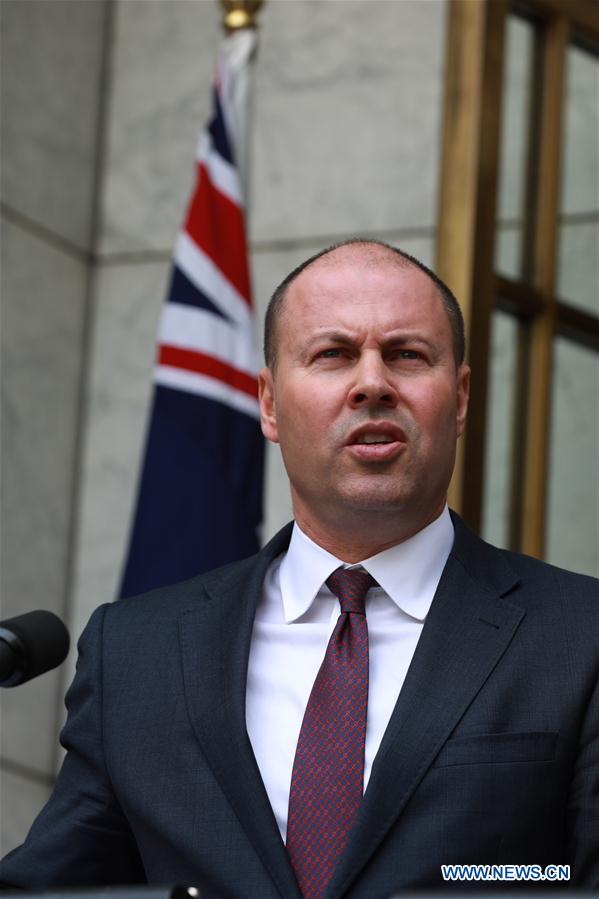
Australian Treasurer Josh Frydenberg attends a press conference at the Parliament House in Canberra, Australia, March 12, 2020. The Australian government announced a 17.6-billion-Australian-dollar (11.35 billion U.S. dollars) coronavirus stimulus package on Thursday. The measures, which are worth more than 1 percent of Australia's Gross Domestic Product (GDP), include incentives to fast-track investment and wage subsidies for trade apprentices. (Photo by Chu Chen/Xinhua)

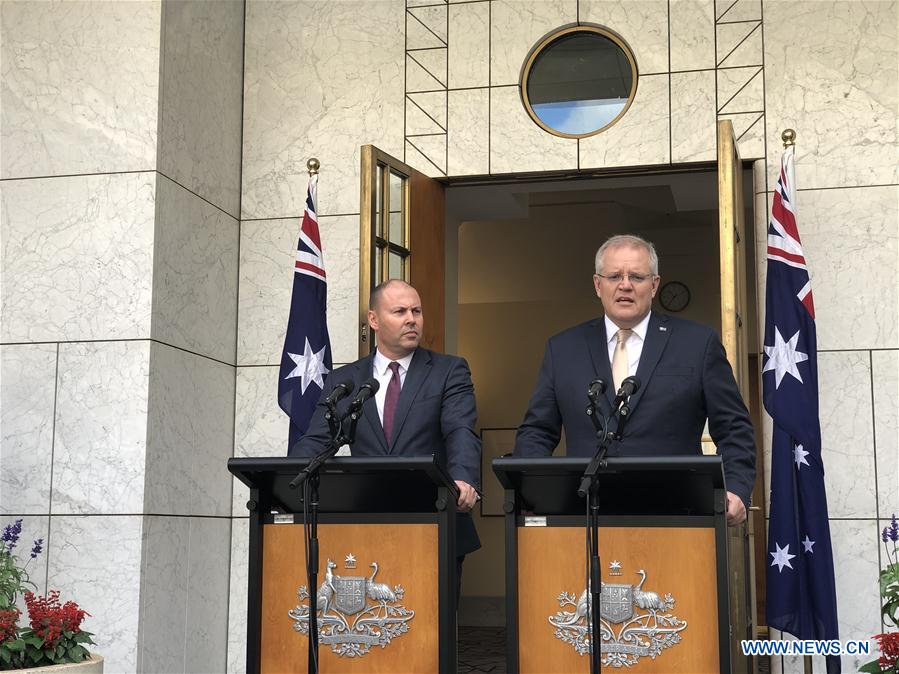
Australian Prime Minister Scott Morrison (R) and Treasurer Josh Frydenberg attend a press conference at the Parliament House in Canberra, Australia, March 12, 2020. The Australian government announced a 17.6-billion-Australian-dollar (11.35 billion U.S. dollars) coronavirus stimulus package on Thursday. The measures, which are worth more than 1 percent of Australia's Gross Domestic Product (GDP), include incentives to fast-track investment and wage subsidies for trade apprentices. (Xinhua/Bai Xu)

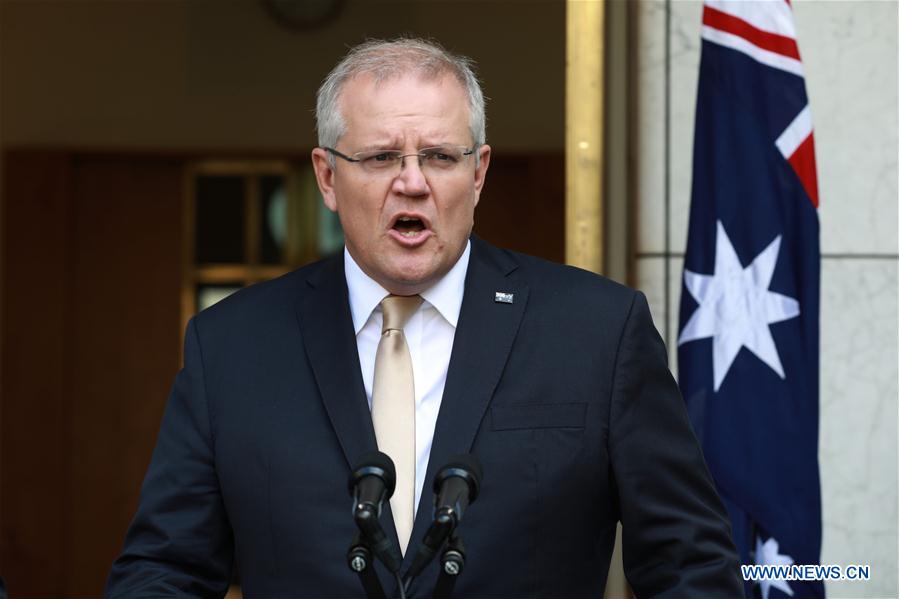
Australian Prime Minister Scott Morrison attends a press conference at the Parliament House in Canberra, Australia, March 12, 2020. The Australian government announced a 17.6-billion-Australian-dollar (11.35 billion U.S. dollars) coronavirus stimulus package on Thursday. The measures, which are worth more than 1 percent of Australia's Gross Domestic Product (GDP), include incentives to fast-track investment and wage subsidies for trade apprentices. (Photo by Chu Chen/Xinhua)

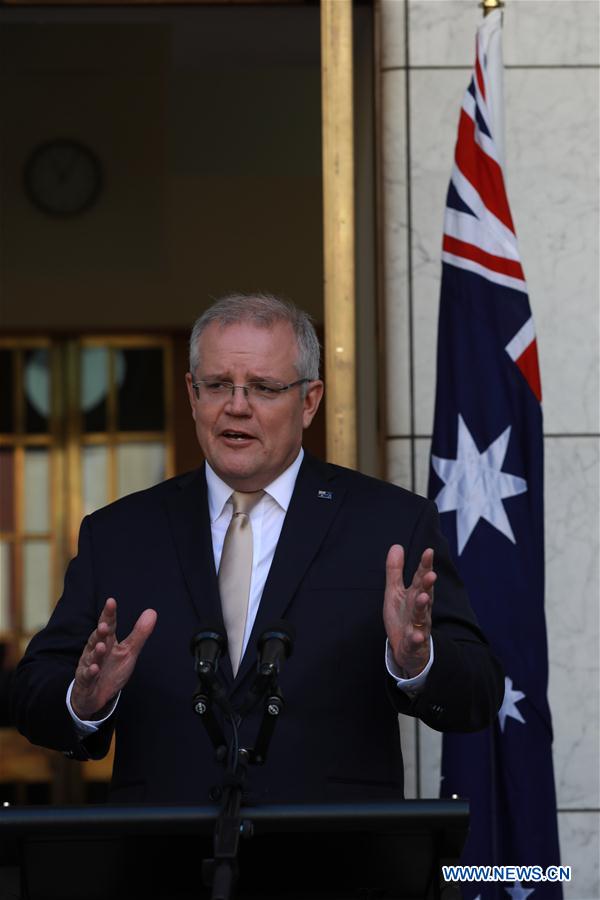
Australian Prime Minister Scott Morrison attends a press conference at the Parliament House in Canberra, Australia, March 12, 2020. The Australian government announced a 17.6-billion-Australian-dollar (11.35 billion U.S. dollars) coronavirus stimulus package on Thursday. The measures, which are worth more than 1 percent of Australia's Gross Domestic Product (GDP), include incentives to fast-track investment and wage subsidies for trade apprentices. (Photo by Chu Chen/Xinhua)

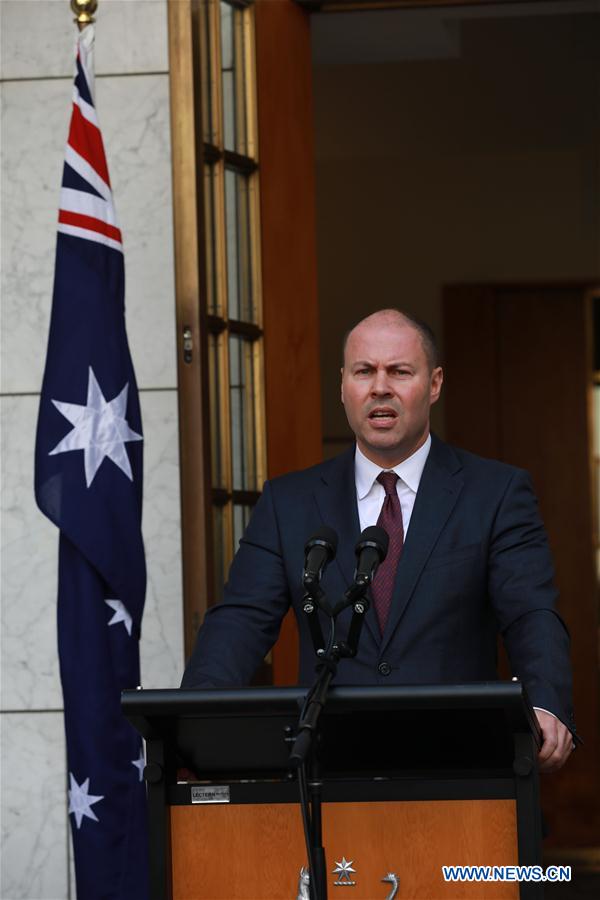
Australian Treasurer Josh Frydenberg attends a press conference at the Parliament House in Canberra, Australia, March 12, 2020. The Australian government announced a 17.6-billion-Australian-dollar (11.35 billion U.S. dollars) coronavirus stimulus package on Thursday. The measures, which are worth more than 1 percent of Australia's Gross Domestic Product (GDP), include incentives to fast-track investment and wage subsidies for trade apprentices. (Photo by Chu Chen/Xinhua)




